Valeska Gert
출생 : 1892-01-11, Berlin, Germany
사망 : 1978-03-16

self
Structured as a cabaret show and composed entirely of rare visual and sound archival material, Cabaret-Berlin, The Wild Scene explores Berlin during the 20s and early 30s, when it was home to Europe’s most innovative and experimental artists, writers, and musicians, and where Jews played a leading role.

Documentary film.

Tante Praskovia
A countess loves her brother's Prussian-officer friend in the 1919 Baltic area.

Ein alter Vogel
In collage sequences, the surrogate of synthetic sensuality takes form and seduces the sailors in the guise of a Hawaiian girl. In ritual punctuation, she distributes deaths which seemingly only the hardy siren Fatality can survive.

Pijma
줄리에타(줄리에타 마시나)는 겉으로는 성공한 남편 조르지오(마리오 피스)와 행복하게 지내고 있는 정숙한 부인이다. 지극히 평범한 외모와 성격의 줄리에타는 어머니, 친척들과 비교해도 너무 다르다. 어느 날 그녀는 결혼기념일에 남편의 지인들과 함께 한 자리에서 그들과 빙 둘러앉아 ‘영혼과의 대화’를 나눈다. 자신에게 들려진 메시지 ‘너는 쓸모없는 사람'이라는 말을 듣고는 쓰러진다. 이후 줄리에타는 여러 환상들을 겪으면서, 친구들과 모여 점성술이나 심령술에 심취하기도 하고 특이한 성격의 이웃 수지(산드라 밀로)와 어울려 보기도 한다. 그리고 15년간 함께해왔던 남편이 다른 직업모델 여성과 바람피우는 것을 알게 된다. 심야에 비밀스런 통화를 나누는 남편을 추궁하지만 그는 아무렇지도 않게 부인할 뿐이다. 나중에 정신과 의사의 도움으로 그녀는 사이코드라마에 참여를 하게 되고, 결국 그녀에게 들려준 정신과 의사의 충고는 ‘당신은 남편을 떠나고 싶어 한다’는 것이었다. 그녀는 결코 그렇지 않다고 하지만 정작 그녀 자신의 삶을 뒤돌아보았을 때, 그녀는 남편이 없는 곳에서야 비로소 자신의 모습을 찾을 수 있었다.

The film, made to advertise domestic telephone sets, is based around two very different families. The Petts are conventional, happy and have children; the Potts are unconventional and unhappy, without children.
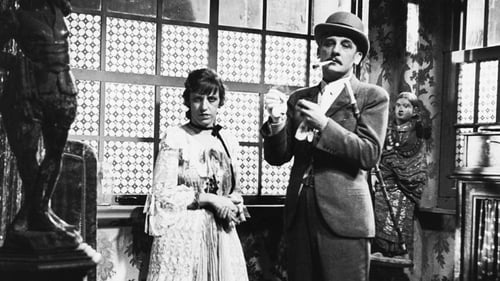
Mrs. Peachum
독일이 자랑하는 20세기 서양연극사의 거장 <베르톨트 브레히트>의 대표작!
도덕적으로 사는 것이 아니라 도덕을 수단으로 팔며 살아가는
자본주의시대의 뒷면을 신랄한 풍자와 비판적 웃음으로 풀어낸 브레히트 연극의 결정판 1900년 무렵 런던을 무대로 도적단 수령 메키는 거지짓을 기업화한 사업가 피첨의 딸 폴리와 결혼하지만 매춘부 제니를 배신함으로써 투옥된다. 총감의 딸 루시의 도움으로 탈옥한 메키는 다시 잡혀 교수대에 오르는데..
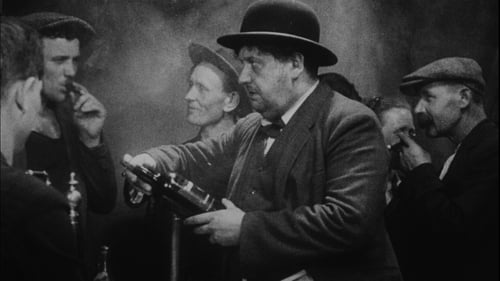
Waitress
A story about domestic life in a typical working-class environment. Life and trials and how little situations have big consequences.

Valeska
1930년에 만들어진 독일의 무성영화로 73분짜리로 만들어졌다. 일요일을 즐기는 사람들을 다큐멘터리 형식으로 스케치한 작품이다. 영화의 주인공으로 등장하는 다섯 남녀 , 택시 운전사, 모델, 와인 딜러, 영화 엑스트라, 레코드 가게 직원은 실제로 그 일을 하는 일반인을 캐스팅하였다.
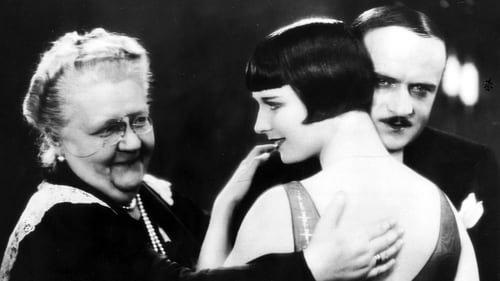
The Reformatory Dean's Wife
약사인 헤닝의 딸 튀미앙의 생일날, 가정부인 엘리자베스가 집에서 쫓겨나는 일이 생긴다. 이로 인해 튀미앙의 생일 분위기는 어두워진다. 튀미앙은 친척 아주머니로부터 일기장을 생일선물로 받는다. 그녀의 집에는 엘리자베스 대신 메타라는 새로운 가정부가 들어오게 된다. 튀미앙은 우연히 아버지가 새로 들어온 가정부 메타와 다정하게 앉아 있는 것을 발견한다. 고용 약사로 일하는 마이네르트는 엘리자베스의 비밀을 이야기해 주겠다며 튀미앙을 약국으로 불러낸다. 튀미앙에게 이야기를 하던 중 마이네르트는 그녀에게 매력을 느끼고, 이야기를 듣다가 실신한 튀미앙과 마이네르트는 그날 밤을 같이 보내게 된다. 이로 인해 튀미앙은 아이를 갖게 되지만 튀미앙은 아이의 아버지를 밝히려고 하지 않는다. 이때 메타가 튀미앙의 일기장을 들고 와서 아이의 아버지가 누구인지를 밝히는데...
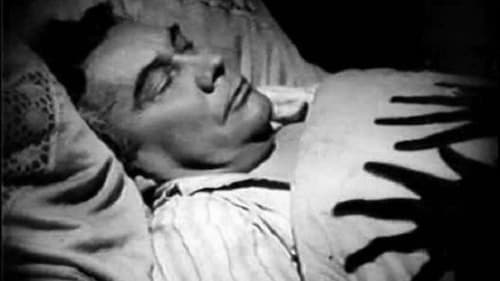
Girl in Alley
Hanns Heinz Ewers' grim science-fiction novel Alraune has already been filmed twice when this version was assembled in 1928. In another of his "mad doctor" roles, Paul Wegener plays Professor Brinken, sociopathic scientist who combines the genes of an executed murderer with those of a prostitute. The result is a beautiful young woman named Alraune (Brigitte Helm), who is incapable of feeling any real emotions -- least of all guilt or regret. Upon attaining adulthood, Alraune sets about to seduce and destroy every male who crosses her path. Ultimately, Professor Brinken is hoist on his own petard when he falls hopelessly in love with Alraune himself. Alraune was remade in 1930, with Brigitte Helm repeating her role, and again in 1951, with Hildegarde Knef as the "heroine" and Erich von Stroheim as her misguided mentor.
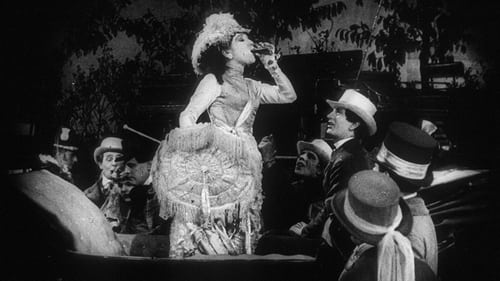
Zoe, the maid
르누아르가 존경해마지 않았던 에밀 졸라의 원작 소설을 각색한 장편 무성영화. 르누아르의 아내인 카트린 에슬랭이 주인공 나나 역을 맡았으며, "칼리가리 박사의 밀실"의 베르너 크라우스가 상대역인 무파 백작 역을 맡았다. 원작과 배우의 지명도에 힘입어 상업적 성공을 확신한 르누아르는 대규모 예산을 투여하여 를 제작했지만, 결과적으로는 흥행에 참패, 아버지의 그림을 팔아 청구서를 갚아야만 했다. 하지만 "나나"의 서정성, 그리고 희극과 비극이 교묘하게 어우러진 분위기는 많은 비평가들의 찬사를 받았다.

In 1921, we follow two women - Marie and Grete - from the same poor Viennese neighborhood, as they try to better the lives of themselves and their families during the period of Austrian postwar hyperinflation.









